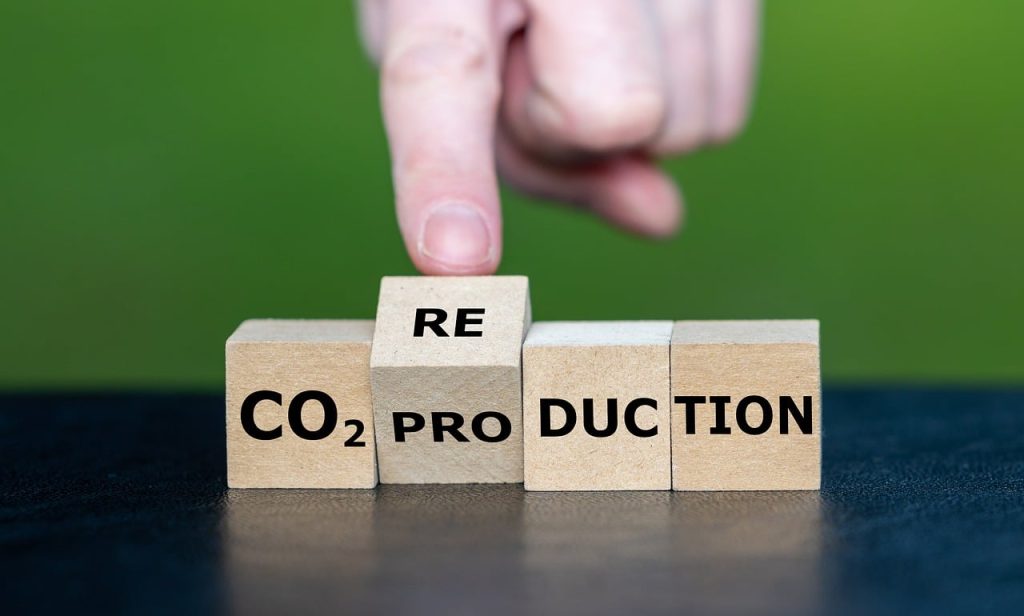
ways-to-reduce-personal-carbon-footprint
Ways to reduce personal carbon footprint
In the face of changing climate and environmental degradation, it has become imperative for individuals to take responsibility for their personal carbon footprint. Reducing Personal Carbon Footprint is the path towards a greener future. So, let us understand in depth what exactly is meant by carbon footprint, why there is a need to reduce carbon footprint, what all contributes to it and what are the changes that can be adopted to reduce personal carbon footprint. Reducing our personal carbon footprint is crucial for addressing climate change and creating a more sustainable future. By making simple lifestyle changes, each one of us can contribute significantly towards reducing greenhouse gas emissions and preserving the planet for future generations
In simple terms, carbon footprint is the measure of the greenhouse gases emitted through our daily activities. For example: the foods that we consume, how is it grown, stored, transported and distributed, across the entire supply chain NetEco+. Thus, it is crucial for each of us to take responsibility for our carbon footprint, reduce our carbon footprint and minimize our impact on the planet.
The need to reduce personal carbon footprints arises from the fact that human activities are the primary contributors to greenhouse gas emissions. From transportation and energy usage to dietary choices and consumption habits, our daily routines generate a significant amount of CO2. By making conscious changes in our lifestyle, we can make a considerable difference in mitigating carbon footprint thereby minimizing its environmental impact that we leave behind.
Here are some key changes to adopt to minimize carbon footprint
- Transportation: Choose to walk, bike, or take public transport instead of driving a car alone. When driving is necessary, opt for carpooling or electric vehicles to minimize emissions. Prioritize eco-friendly travel options like trains or buses over planes if feasible. Offset the carbon emissions from trips by investing in carbon offset programs.
- Energy consumption: Switch to renewable energy sources like solar or wind power. Ensure energy-efficient practices by using LED lights, turning off appliances when not in use, using smart power strips, and properly insulating homes.
- Food choices: Our dietary choices also play a crucial role in carbon emissions. The production, transportation, and process of eating Locally grown and fresh foods contribute significantly less to greenhouse gas emissions. Can we move to suitable alternatives to animal proteins such as mock meat etc. By adopting a more plant-based diet and reducing meat consumption, we can greatly reduce our personal carbon footprint.
- Water conservation: Reduce water waste by installing low-flow fixtures, repairing leaks promptly, and adopting mindful habits like shorter showers or collecting rainwater for watering plants,
- Waste management: Embrace recycling and composting to minimize the amount of waste going to landfills. Avoid single-use plastics, opt for reusable alternatives, and buy products with minimal or no packaging. A major contribution to human waste is because of the shift from natural foods to packaged foods. Over the years, more and more people are opting for packaged foods rather than natural foods. Not only are they unhealthy compared to natural foods but also, they are also a major contributor to the waste we produce.
- Shopping habits: Support eco-friendly and sustainable products by buying locally produced, natural, and fair-trade items. Choose items made from recycled materials and prioritize durability over disposable products.
- Plant trees and greenery: Enhance sustainability by planting trees in your community or supporting reforestation projects. Trees capture carbon dioxide and provide shade, improving air quality and mitigating climate change.
- Education: Stay informed about climate change-related issues and spread awareness within your circle. Encourage others to adopt sustainable practices and join hands with Earth Harvests, a company that advocates for sustainability.
- Engage in local initiatives: Participate in local green initiatives, clean-up activities, or community gardens to make a meaningful impact locally.
It is essential to acknowledge that even small actions can collectively have a significant impact on reducing our carbon footprint. By adopting these lifestyle changes, we can contribute to a more sustainable and environmentally friendly future for ourselves and future generations
Amidst the global efforts to reduce carbon footprints, we at Earth Harvests are dedicated to nurturing natural and sustainable food production methods that emphasize freshness, natural growth, and reduced environmental impact. By sourcing our products locally, we ensure freshness, minimize transportation emissions and support local farmers. All our products come in an eco-friendly and sustainable packaging.
Consuming fresh and sustainably grown food produce not only ensures healthier eating but also positively impacts the environment. Locally grown food requires less traveling to reach your plate, reducing greenhouse gas emissions associated with transportation. Moreover, sustainable farming practices promote soil health and biodiversity, further mitigating carbon emissions.
In conclusion
To put this into perspective, a study conducted by the National Institute of Nutrition and Seafood Research in Norway found that on average, food transport accounts for less than 10% of the total greenhouse gas emissions associated with food consumption. Local food systems, such as those supported by Earth Harvests, can significantly reduce these emissions while providing communities with fresher food options. This highlights the potential impact that sustainable and locally sourced food can have on reducing both personal and overall carbon footprints.
Ultimately, reducing our personal carbon footprint is a responsibility we must all take seriously. By implementing sustainable practices, choosing eco-friendly transportation, and making conscious food choices, we can become active participants in building a greener future for ourselves and the future generations.



